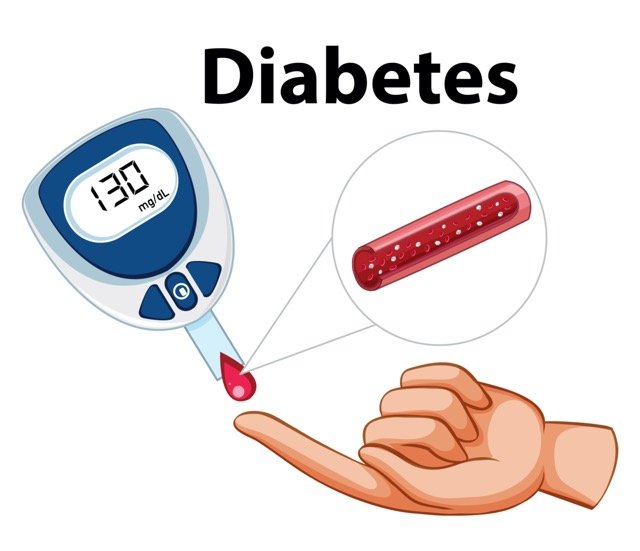Reconnecting Health, Mind, and Quality of Life
Every year on November 14, the world unites to raise awareness about diabetes — a condition that affects more than 540 million people globally. For 2025, the theme is:
"Diabetes and Wellbeing"
This theme highlights a powerful but often overlooked reality: living well with diabetes is not only about controlling blood sugar — it’s about emotional, mental, and physical well-being.
✅ What Does “Diabetes and Wellbeing” Mean?
Managing diabetes is not limited to HbA1c numbers, medications, or meal plans. It includes:
-
Mental health — reducing stress, burnout, and emotional burden
-
Lifestyle — healthy eating, regular physical activity, and sleep
-
Social support — family, friends, and healthcare guidance
-
Self-care routines — feeling empowered to manage your condition
Wellbeing = Diabetes Management + Quality of Life
🧠 Diabetes Burnout Is Real
People living with diabetes make 180+ health decisions per day. From checking sugar levels to counting carbs, dosing insulin, and dealing with fluctuations — it becomes emotionally exhausting.
Signs of diabetes burnout:
-
Ignoring glucose monitoring or medications
-
Feeling overwhelmed with meal planning
-
Being constantly anxious about sugar levels
-
Irritation, guilt, frustration, or helplessness
Diabetes burnout does not mean you are careless.
It means you are exhausted from trying so hard.
❤️ How Diabetes Affects Mental Health
Research shows that people with diabetes are at a higher risk of:
| Mental Wellbeing Concern | Why It Happens |
|---|---|
| Anxiety & Worry | Sugar fluctuations, fear of complications |
| Depression | Chronic fatigue, restriction, isolation |
| Stress | Continuous decision-making, financial burden |
| Sleep Disturbances | High/low blood glucose episodes |
Blood sugar and mood are deeply interconnected — high blood sugar can make you tired and irritated, while low blood sugar can cause panic and confusion.
🧘♂️ Four Pillars of Wellbeing in Diabetes Management
1. Nutrition
-
Balanced meals (protein + veggies + complex carbs)
-
Low glycemic index (LGI) foods
-
Mindful eating instead of restricted eating
Focus on real food, not no food.
2. Movement
-
Even 20–30 minutes/day improves insulin sensitivity
-
Walking after meals reduces sugar spikes significantly
Movement is medicine.
3. Sleep
-
Sleeping <6 hours increases insulin resistance
-
Prioritize a consistent sleep routine
4. Stress Management
-
Breath work
-
Yoga
-
Meditation
-
Hobbies and social support
Stress can increase blood sugar as much as sugary food — sometimes even more.
🌿 Strategies to Improve Daily Wellbeing
| Area | Simple Habit To Improve Wellbeing |
|---|---|
| Mind | 5 minutes of deep breathing every morning |
| Diet | Eat protein first in every meal |
| Exercise | Walk 10 minutes after each meal |
| Sleep | Avoid screens 45 minutes before bed |
| Monitoring | Track weekly, not hourly, trends |
Tiny habits lead to massive health changes.
🤝 The Role of Healthcare Providers
Healthcare is shifting from “medication-centered” to “patient-centered.”
Effective diabetes care includes:
-
Education about nutrition
-
Emotional support
-
Shared decision-making
-
Compassionate communication
Patients who feel heard and supported have better outcomes.
🩺 Preventing Diabetes: A Public Health Priority
Prediabetes affects nearly 374 million people worldwide.
Good news:
Prediabetes can be reversed through:
✅ Intermittent fasting
✅ Weight reduction
✅ Healthy diet
✅ Regular exercise
Even a 5–7% weight loss reduces diabetes risk by up to 58%.
🔵 Call to Action: How You Can Participate in World Diabetes Day 2025
-
Support someone with diabetes
-
Get screened if at risk
-
Participate in community walks or awareness events
Awareness saves lives. Action changes them.
✨ Final Message
Diabetes may be lifelong —
but suffering from it doesn't have to be.
World Diabetes Day 2025 reminds us:
“Diabetes management is not only about adding years to life…
It's about adding life to years.”







